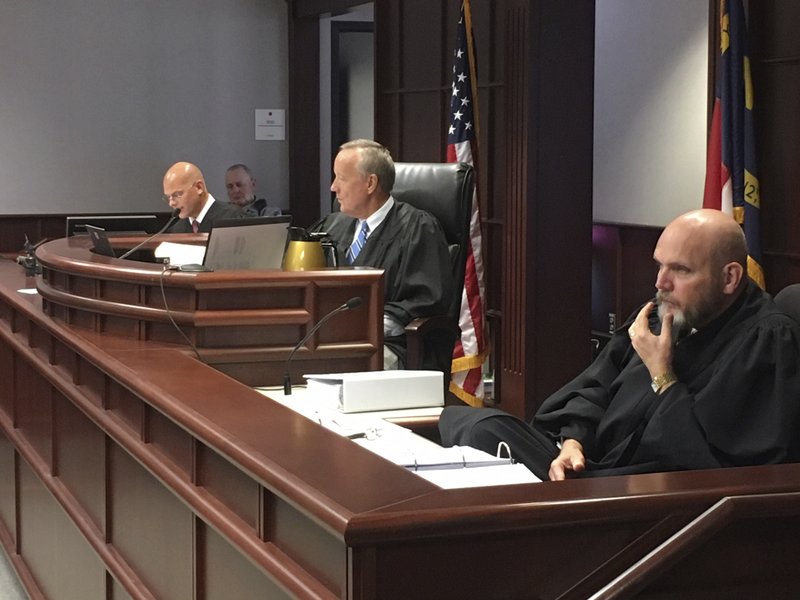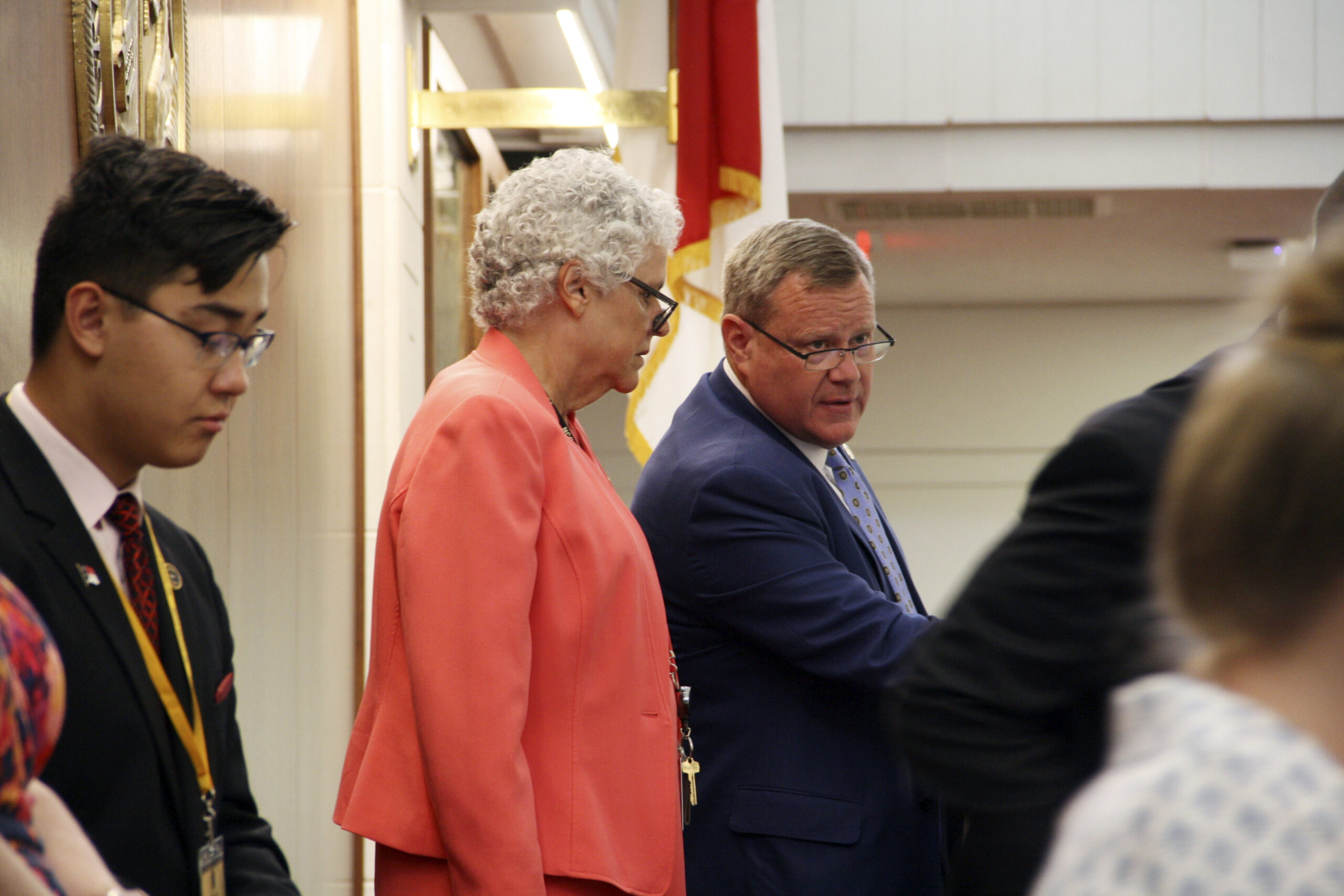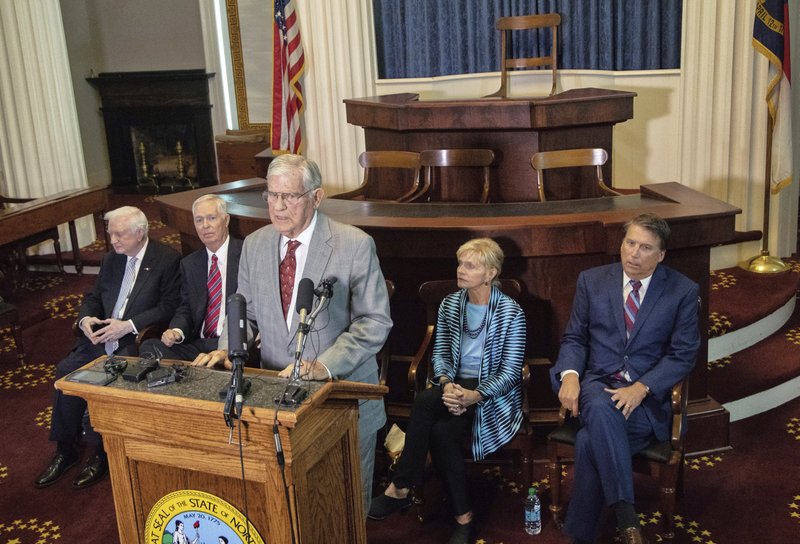A panel of judges was asked Wednesday to decide whether North Carolina’s Republican-dominated legislature is trying to fool voters by calling for constitutional changes without explaining the effect would be to strip more power from Democratic Gov. Roy Cooper.
A three-judge panel heard from lawyers arguing whether two amendments should be blocked before voters see them because their goal is to diminish Cooper’s power, including in some ways courts had previously blocked.
“This is an extraordinary case and these are extraordinary circumstances. The General Assembly is trying to trick the voters of North Carolina into amending their constitution,” Cooper lawyer Erik Zimmerman told the judges.
The case has bigger future implications, he said. If judges accept the legislature’s arguments that courts have to butt out and lawmakers have complete control over putting constitutional changes before the voters, “the General Assembly has carte blanch to say whatever it wants in a ballot question, no matter how wrong, no matter how untruthful, no matter how inaccurate,” Zimmerman said.
Cooper’s lawyers argued that the amendments would enhance the legislature’s power by letting it take over some judicial appointments from governors who are elected statewide to ensure laws and regulations are carried out. Lawmakers also would gain control of boards and commissions that decide rules for everything from beauty salons to natural gas fracking and how community colleges should run.
The judges — one Democrat, one Republican and one registered as unaffiliated — were appointed by Chief Justice Mark Martin to decide whether there are grounds to keep the two amendments off the ballot.
A lawyer for House Speaker Tim Moore and Senate leader Phil Berger, who are defendants in Cooper’s lawsuit, didn’t deny the amendments shift powers away from Cooper, though he did deny they were misleading.
Instead, attorney Martin Warf argued that legislators control “the procedure throughout, from beginning to end” and could propose amendments without having an obligation to explain their effects.
The judges also heard a separate lawsuit by the state NAACP and Clean Air Carolina that seeks to block the same amendments, plus two others that would mandate photo identification to vote and reduce the maximum allowed income tax rate.
The panel could decide as early as Friday, when attorneys were told to submit examples of what they thought the judges should say in their ruling.
The dispute must work through the courts by Sept. 1 so that ballots can be finalized in time to make them available to absentee voters. Judge Forrest Donald Bridges joked that everyone knows the losing side will appeal to the state Supreme Court.
“We are just the gate you all are about to pass,” he said.
Warf argued that rather than rushing to a decision now, judges could wait until after November’s election to decide whether the amendments were valid.
But delaying until voters cast ballots and then potentially voiding the result “is the sort of thing that the Russians are doing — sowing discord,” among Americans, said Matthew Sawchak, a state attorney representing the state elections board. “That will be its effect.”
Photo via Associated Press / Emery P. Dalesio




